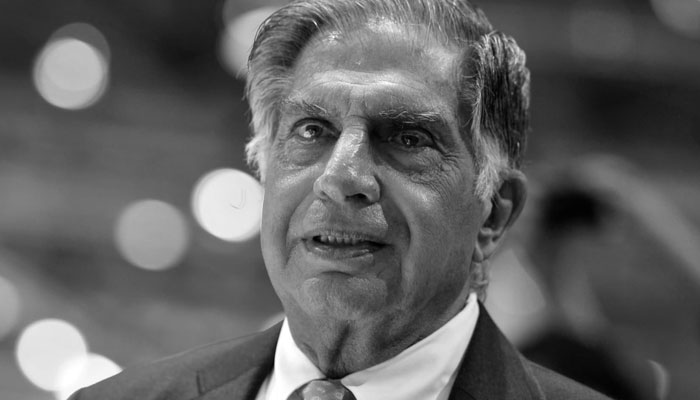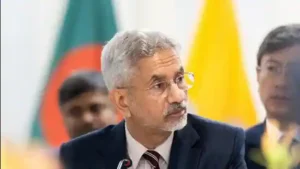Ratan Tata: A Legacy of Leadership and Innovation

Ratan Tata, a prominent businessman in India and around the world, passed away this week at the age of 86. As the former chairman and later chairman emeritus of the Tata Group, Ratan Tata was an influential figure in the global business landscape. Tata Group, one of India’s oldest and most respected business conglomerates, boasts a legacy spanning 158 years. Over the past three decades, the group has made remarkable progress, firmly establishing itself both domestically and internationally. Consequently, Ratan Tata’s passing has prompted a wave of tributes across India, with figures ranging from the Prime Minister to industry leaders and ordinary citizens honoring him as a national hero and symbol of Indian enterprise.
Ratan Tata was born in 1937 in the city of Surat. He pursued his education in architecture at Cornell University in the United States, a prestigious institution that would shape his thinking and future endeavors. Upon returning to India, he joined the Tata Group in 1962 as a trainee in one of its companies. He started at the bottom and gradually rose through the ranks, first as an assistant and then in various roles across the group’s companies. While he was connected to the Tata name by birth, he quickly demonstrated his own unique identity, marked by his talents, strategic vision, calm demeanor, and unwavering confidence.
The 1970s and 1980s were turbulent decades for Indian business. The country’s economic landscape was heavily regulated, making expansion and investment incredibly challenging. During these years, the Tata Group faced constant challenges in growing its footprint, particularly in new sectors. Despite this, Ratan Tata made his way to senior management within the group, demonstrating his resilience and business acumen. The defining moment of his career arrived when J.R.D. Tata, after leading the group for six decades, had to select a successor. Several highly talented candidates were in the running, but J.R.D. ultimately chose Ratan Tata. As time would prove, this choice was both wise and strategic.
In 1991, Ratan Tata took over as chairman of the Tata Group. At that time, the group’s annual revenue was approximately $4 billion. Over the next two decades, he steered the company toward unprecedented growth. By the time he retired in 2012, Tata Group’s revenue had surged past $100 billion. Under his leadership, the conglomerate’s revenue continued to rise, reaching $165 billion in 2023, a testament to his enduring legacy and the solid foundation he built.
Ratan Tata’s leadership came at a transformative time for India. The 1990s marked the beginning of economic reforms in the country, which led to a wealth of new business opportunities and investment prospects. These reforms unleashed the potential of the private sector, transforming India into one of the world’s fastest-growing economies. The Tata Group played a significant role in this transformation, becoming a symbol of India’s economic resurgence.
Upon assuming the chairmanship, Ratan Tata inherited a decentralized conglomerate, where various divisions operated independently within their respective sectors. He worked to centralize the governance structure, turning what had been a loosely coordinated network of businesses into a cohesive and well-integrated entity. He also made strategic decisions to divest from businesses that either lacked growth potential or were proving unprofitable, including sectors such as cement, textiles, and pharmaceuticals. Instead, he focused on areas with promising growth prospects, such as software, steel, telecommunications, automotive manufacturing, aviation, insurance, finance, and retail.
Ratan Tata’s influence extended far beyond India. He spearheaded the acquisition of several major companies overseas, further solidifying the Tata Group’s reputation as a global powerhouse. Notable acquisitions included the purchase of British steelmaker Corus, the luxury car brands Jaguar and Land Rover, and a stake in Tetley Tea. These acquisitions allowed the Tata brand to establish a foothold in markets across Europe, North America, and beyond, ensuring that the Tata Group became a recognized name across all major continents.
Despite his successes, Ratan Tata’s career was not without its challenges. In the automotive sector, the Tata Motors division faced a significant loss of around ₹500 crores in the mid-1990s. The loss sparked unrest among shareholders, leading Ratan Tata to offer his resignation. However, he ultimately chose to stay and continued to lead the company forward. In 2005, he announced plans to create the world’s cheapest car, the Tata Nano, aiming to make car ownership accessible to the masses in India. Unfortunately, various factors, including marketing and production challenges, led to the project’s underwhelming performance. While the Nano was an ambitious endeavor, it ultimately resulted in substantial financial losses.
Another notable setback occurred in 2001 when a fraud case involving ₹500 crores emerged in one of the group companies, dealing a significant blow to the conglomerate’s reputation. In 2011, Ratan Tata appointed the son of an old business associate as his successor, but this decision led to a protracted legal battle when the successor was dismissed just four years later. This internal conflict created waves in the Indian corporate world and underscored the challenges of managing succession in large, family-owned conglomerates. Furthermore, in the late 2000s, Ratan Tata faced allegations of impropriety in connection with India’s 2G telecom licensing scandal, based on recordings made by a public relations firm. Though these allegations were never proven, they cast a temporary shadow over his otherwise stellar reputation.
Throughout Asia, private investors have played crucial roles in transforming their respective economies over the past three decades. Business magnates like Li Ka-shing in Hong Kong, and other investors in South Korea, Singapore, and Malaysia, have been instrumental in driving their nations’ economic success. Although Pakistan has lagged behind in this regard, Tata’s legacy serves as a reminder of what entrepreneurship, supported by conducive government policies and a favorable business environment, can achieve.
Ratan Tata’s life and career continue to inspire entrepreneurs and business leaders across the globe. His strategic vision, resilience in the face of setbacks, and commitment to ethical business practices have left an indelible mark on the world of business. As India and the world bid farewell to Ratan Tata, they celebrate a man who not only elevated the Tata Group to new heights but also represented the power of Indian enterprise on the global stage. He leaves behind a legacy that will undoubtedly influence generations to come, as a symbol of the transformative potential of visionary leadership.








